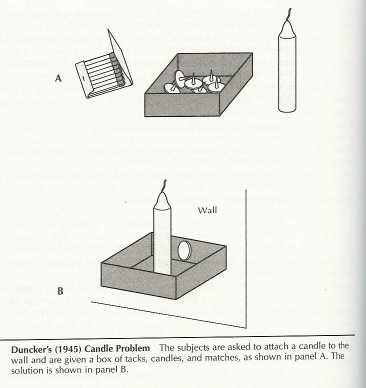When Neil deGrasse Tyson talks about the cosmos, he sometimes hears complaints that man is meaningless in the scale of the cosmos. First of all, I have to admit that I think those people are intrinsically misguided. Apparently some people think that life only has meaning according to its magnitude in space and time: microbes matter little, and by extension ad absurdum, whales must live much more meaning than humans. Anyway, NGT responds by pointing out how humans can participate in the cosmic ballet of matter that extends from the origins of time itself through supernovae, yadda yadda. This sense of the organic universe views all human action as part of a cosmic whole. NGT extends this view to say that anyone with a cosmic sense can do no wrong: they start no wars, they burn no fossil fuels, etc. It's an extremely aristocratic worldview: even the starving orphan in a war zone participates in the ballet of cosmic matter, and therefore the educated elite who, like Tyson, can worship at the altar of cosmology, can do no wrong. NGT presents a warmed-over cosmology borrowed from Pope, Whatever is, is RIGHT.
How does NGT define the universe? The answer is important, because it is the all-beautiful whole in which we all participate: the definition of the universe is, then, the definition of NGT's sense of moral order. NGT defines the cosmos according to current instrumentation and mathematics available to astronomers. He is aggressively agnostic about any existence before the Big Bang--which, by the way, he refers to as a "fact" of reality, rather than an inference from cosmological data. I digress... NGT precludes many of the traditional senses of "cosmos," which John Bulwer first used in 16th century English to express the sum of material and immaterial domains. Beauty is inextricably linked to Bulwer's sense of "cosmos": "As the greater World is called Cosmus from the beauty thereof." Beauty, in NGT's cosmos, clings closely to astronomical observation: matter is beautiful; stars are beautiful. Beauty itself? I can't speculate how NGT would formulate his agnostic materialist aesthetics.
Define the universe too narrowly, and you may identify a "greatest good" that's entirely a local phenomenon. Consider the plastisphere:
The two researchers collected pieces of plastic from various sites in the North Atlantic. They then examined each using DNA analysis, and also an electron microscope, to see what was living on it. Lots of things were. Altogether, they discovered about 50 species of single-celled plant, animal and bacterial life. Each bit of debris was, in effect, a tiny ecosystem.A bottled ecosystem, like the plastisphere, may "believe" in a cosmology, in the sense that it operates according to the rules intrinsic in its material environment. In the plastisphere, energy is abundant: either in the form of sunlight or plastic. In the plastisphere, predators are an impossibility: the material conditions for apex predators are impossible inside each 750mL ecosystem. And in the plastisphere, the existence of humanity is a useless abstraction. Each plastisphere, like NGT's universe, abides by material rules that seem to be internally consistent but arbitrary beyond a certain level of abstraction. Ultimately, the plastic-eating bacteria thriving in each plastisphere will puncture the walls of their bottled environment. The universe, meaning the plastisphere, will descend and decay into the sea.
As with many ecosystems, the bottom of the food chain was occupied by things that photosynthesise. These included unicellular algae called diatoms and dinoflagellates, and photosynthetic bacteria known as cyanobacteria. Usually, such creatures swim freely in the ocean. They therefore have to work hard to stay near the surface, where light for photosynthesis is abundant. By hitching a ride on a piece of floating plastic, they can stay near the surface without effort.
Where plants abound, herbivores will not be far behind. These, Dr Mincer and Dr Amaral-Zettler found in the form of dinoflagellates, some of which like to snack on smaller creatures to supplement their photosynthesis. They also found predators on the herbivores, in the form of ciliates (a type of protozoan) and predator bacteria, which feed on other bacteria. Except for top predators—the type that themselves prey on predators—the two researchers thus discovered a classic web of food chains of the sort familiar from ecology text books. And they also, and perhaps most pertinently from the human point of view, found evidence for one other part of such a food web: the decomposers.
I'm not really invested in making a parallel between each environment, except to say that some definitions of the universe provide the basis of ethical systems. A definition of the human universe as material and indifferent to human action can lead, on the one hand, to NGT's disregard of war or terrestrial resources. On the other hand, a universe that's been defined as careless to the suffering of orphans, or the destruction of a human ecosystem, will promote ethical systems that disregard the plastification of the oceans on the homeworld of mankind--a bottle ecosystem.

